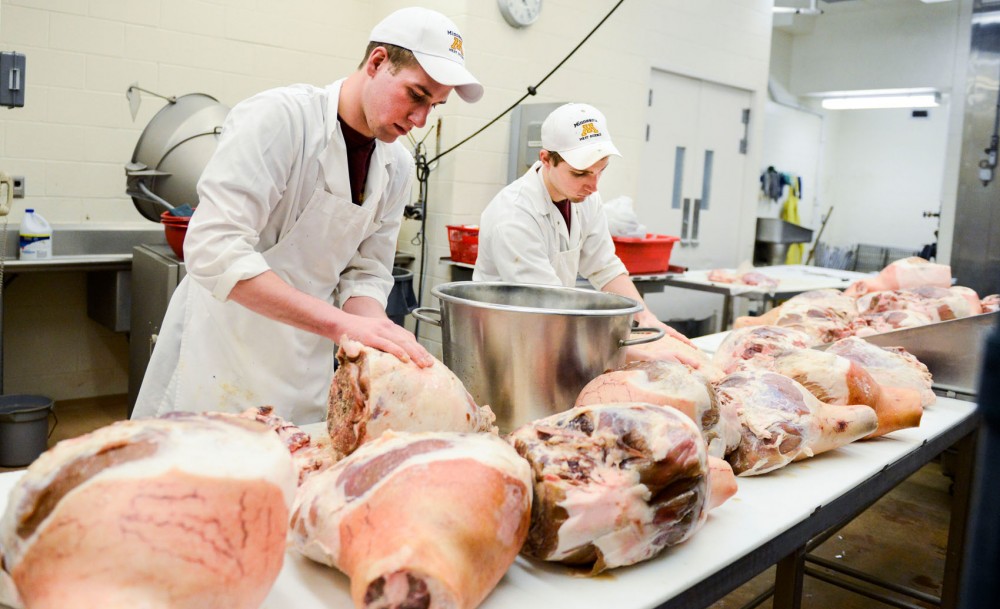The most exciting part of Peter Leonard’s job is slaughtering dozens of animals and vacuum sealing them in packages.
The fisheries junior, who works in the University of Minnesota Meat Science Laboratory, learns about meat production from examining animals’ diets to selling the butchered cuts to the public.
“It’s fun and hard work,” he said. “I’d rather be doing stuff like that than sitting behind a desk.”
But recent factors like a regional drought and rising corn prices may make it more difficult for students like Leonard to work with beef.
The Minnesota Beef Research and Education team, a group of animal scientists from across the state that’s commonly called the Beef Team, is researching beef-industry issues that may threaten meat production.
“The beef industry in Minnesota is a lot bigger than what people think it is,” said Bethany Funnell, a Beef Team veterinarian who works in Grand Rapids.
Minnesota’s cattle herds are significantly smaller than they’ve been for a long time, said Ryan Cox, an animal science assistant professor and meat science specialist on the Beef Team.
Cox said the team is studying efficiency in state beef production and looking for ways to increase cattle counts across the state.
Since Minnesota is responsible for fattening a large amount of U.S. cattle during the last months before processing, it’s important the state takes an active role in addressing the industry’s issues, Cox said.
“We’re a critical part of the production chain for beef,” he said.
Funnell said the team is also working to connect different sectors of the Minnesota beef industry since most cattle feeding areas are in the southern part of the state where there’s a high volume of corn production.
“There are a lot of cows north of I-94,” she said.
While food producers have historically gone out of state to purchase feeder calves — cattle bred for beef production — Funnell said the Beef Team is working to improve cattle commerce between the northern and southern parts of the state.
“There’s a lot of good calves in Minnesota that could stay right in Minnesota,” she said.
The variety of disciplines represented on the Beef Team helps it address issues like this, said Allen Bridges, a reproduction specialist who works at the University’s North Central Research and Outreach Center in Grand Rapids.
Bridges said the Beef Team’s focuses include beef cattle nutrition, reproduction, health and safety.
“We try to fill all roles in the beef industry,” he said. “We try to serve the whole gamut.”
Cox said the unified atmosphere of the team makes researching these issues fun.
“There’s no real ego,” Cox said. “Everybody’s always willing to collaborate and work together.”


